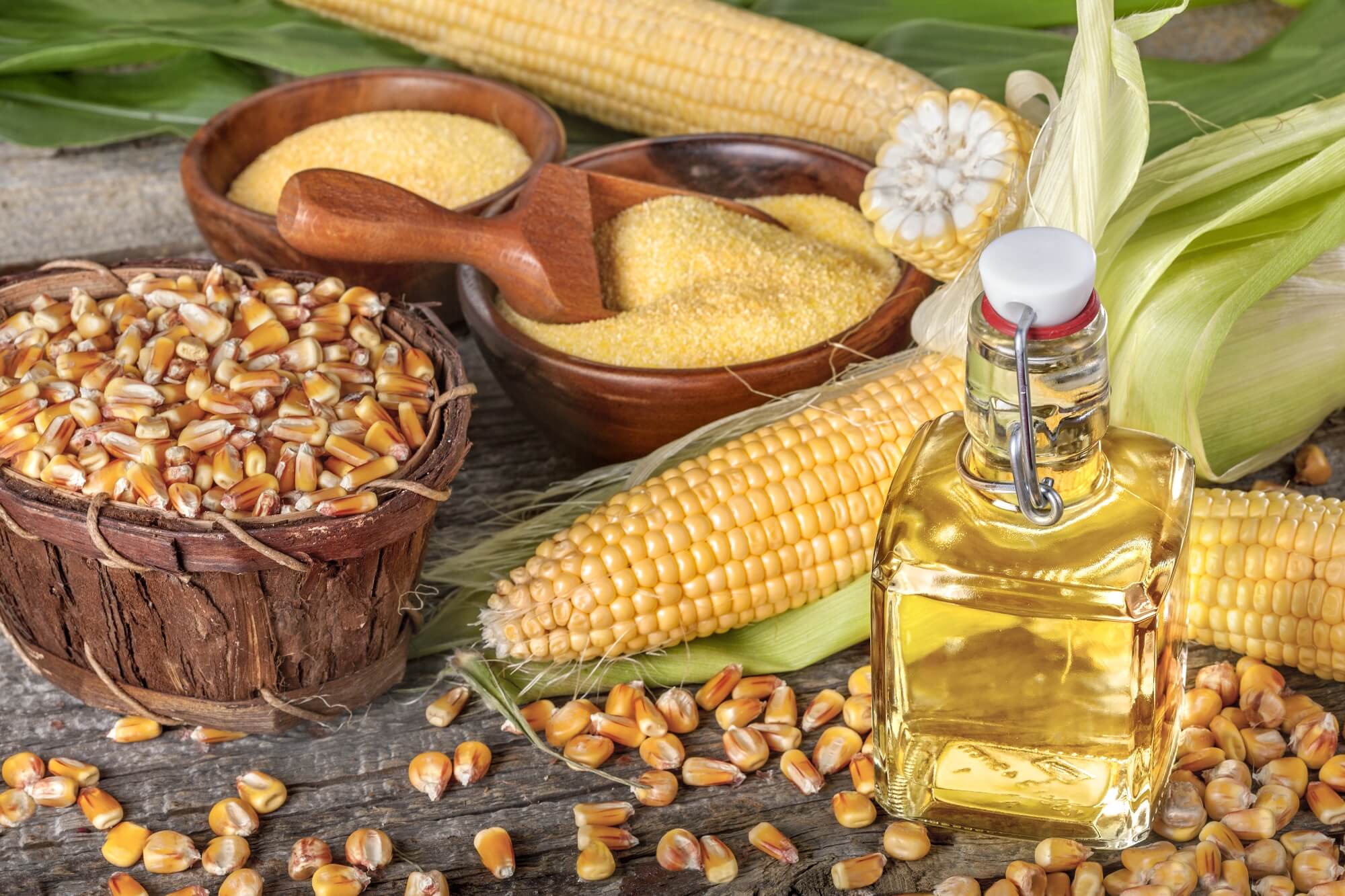

Vegetable Oils
RBDW corn oil
Crude degummed corn oil
Corn oil is a germ oil and therefore contains far more essential elements than ordinary seed oils.
Corn oil differs from other vegetable oils through its high levels of essential fatty acids (56 %), vitamin E, phytosterols and other important minor components, such as coenzymes Q9 and Q10.
Essential fatty acids (linoleic acid omega-6 and alpha-linolenic acid omega-3) are essential biological elements that need to be absorbed through the daily diet, because the body itself is not able to synthesise them.
The essential fatty acids in corn oil can contribute to:
Preventing high blood pressure.
Delaying the effects of diabetes.
Combating obesity.
Preserving the immune system.
Corn oil contains around 45 mg of vitamin E per 100 gm. Vitamin E is crucial for the protection of cell membranes. It is an important antioxidant, actively combating free radicals.
Phytosterols have a noticeably favourable impact on the cholesterol level (a lowering effect). The phytosterols and their derivatives reduce the absorption of bad cholesterol (LDL), reducing the risk of cardiovascular disease. Phytosterols reduce the risk of bowel cancer.
Corn oil has the largest proportion of phytosterols in comparison with other vegetable oils.
Application
Due to its universal characteristics and high heat stability, corn oil is used for a broad range of applications:
As a general cooking oil, it is used for roasting, baking and deep-fat frying.
Due to its rich taste and high vitamin content, it is used for cold preparations such as salads, sauces, mayonnaises and vinaigrettes.
In industrial applications it is used as a cooking oil for snacks and as an important oil component in baby food.
Due to its high vitamin E content, the oil is used for treating burns, in cosmetics and also as baby oil.
Composition of corn oil
| Energy | 3,700 kJ = 900 kcal |
| Protein | 0 g |
| Carbohydrates | 0 g |
| Fat | 100 g |
| Saturated fats | 13 g |
| Mono-unsaturated fats | 30 g |
| Polyunsaturated fats | 56 g |
| – of which linoleic acid (omega-6) | 55 g |
| – of which linolenic acid (omega-3) | 1 g |
